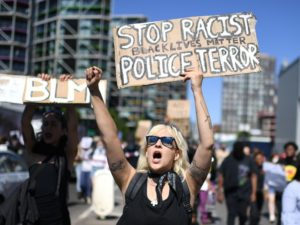African leaders commit to fight racism
 Senior African leaders in the United Nations have expressed commitment to act decisively to help end systemic racism against people of African descent and other minority groups.
Senior African leaders in the United Nations have expressed commitment to act decisively to help end systemic racism against people of African descent and other minority groups.
This will help in promoting and encouraging respect for human rights and for fundamental freedoms for all, without distinction as to race, sex, language, or religion as stipulated in Article One of the UN Charter.
“As leaders in the multilateral system, we believe it is incumbent upon us to speak for those whose voices have been silenced, and advocate for effective responses that would contribute to fight systemic racism, a global scourge that has been perpetuated over centuries,” the leaders said.
A statement signed by 22 Senior UN officials and copied to the Ghana News Agency in Accra on Tuesday said African leaders must do more by ‘walking the talk’.
“Not enough can ever be said about the deep trauma and inter-generational suffering that has resulted from the racial injustice perpetrated through centuries, particularly against people of African descent,” it said.
The statement quoted Mr António Guterres, the Secretary-General of the United Nations, as saying: “We need to raise our voices against all expressions of racism and instances of racist behaviour”.
It welcomed the initiatives by the Secretary-General to strengthen the global anti-racism discourse, which would address systemic racism at all levels, as well as its impact wherever it exists, including the United Nations Organisation.
It said following the killing of George Floyd, the cry; “Black Lives Matter,” across the United States and throughout the world was more than a slogan, stressing that “they do not only matter but they are quintessential to the fulfilment of the common human dignity.”
“We owe it to George Floyd and to all victims of racial discrimination and police brutality to dismantle racist institutions.”
It called for an honest assessment of how the UN Charter was upheld within the institutions to initiate and sustain real change in the system.
The statement called on African leaders to contribute towards the realization of Africa’s own transformative vision contained in the Agenda 2063, which was consistent with the world’s Agenda 2030.
“As leaders we share the core beliefs and the values and principles enshrined in the Charter of the United Nations that do not leave us the option to keep silent.”
“We commit to harnessing our expertise, leadership and mandates to address the root causes and structural changes that must be implemented if we are to bring an end to racism”.
Source: GNA
